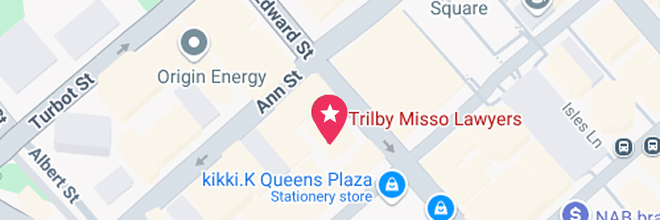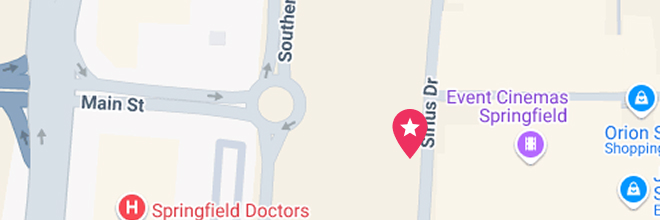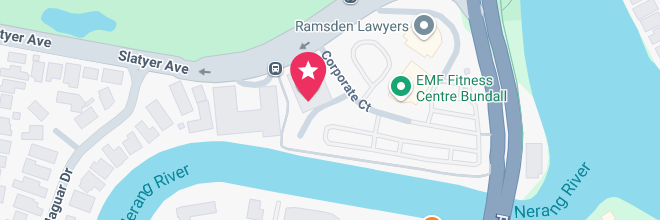Understanding Workers’ Compensation: Essential information for employees
Workers’ Compensation typically covers employees across all employment types, including full-time, part-time, casual, and permanent positions. Even though some workers are employed as independent contractors, they may still satisfy the definition of “worker” for the purposes of seeking compensation.
Here are the types of injuries you may be able to make a claim for:
Physical Injuries
- Fractures and breaks – ankle, leg, arm
- Lower back strain
- Neck strain
- Spinal injury, compression, slipped or bulging discs
- Concussion
- Burns
- Cuts and lacerations
- Loss of finger
- Amputations
- Crushed hand, foot
Psychological Injuries
- Depression
- PTSD (Post-Traumatic Stress Disorder)
- Anxiety disorders
- Stress
- Burnout
Aggravation of Pre-existing Conditions
- Worsening of a pre-existing back injury due to workplace activities
- Exacerbation of pre-existing asthma
- Increased severity of arthritis
Delayed Onset Injuries or Conditions
- Asbestosis
- Mesothelioma
- Lead poisoning
- Silicosis
Over Period of Time Injuries
- Repetitive-strain injury (RSI)
- Psychological stress injuries
- Carpal tunnel syndrome
- Tendonitis
To make a claim for workers’ compensation, you don’t need to have a comprehensive understanding of the process. However you’ll benefit from learning about workers’ compensation for these reasons:
- You can identify when your rights are compromised.
Understanding what happens when you’re involved in an incident at work, or you suffer an injury as a result of your work, helps you identify when your rights are compromised. - You can streamline the claims process, to push for a faster resolution.
Knowing what information you need to prepare the necessary documentation can streamline the claim process. - You’ll avoid potential errors and delays.
Familiarity with the compensation claim process, and knowledge of workers’ rights, reduces errors and potential delays. - You’ll have a better understanding of the claim timeline.
Understanding the compensation system’s timeline prepares you for the process duration. - Knowledge is power, which can improve your outcomes.
Knowledge ensures workers receive all benefits entitled to them, safeguarding your financial stability. Workers equipped with precise information are better advocates for their own health and financial wellbeing.
“Do I have a claim?”
Use this simple online tool and find out if you have a claim in less than thirty seconds. You can choose to remain anonymous.
Your compensation entitlements after a workplace injury
There are two phases to a WorkCover Claim:
- Statutory Workers’ Compensation Claim through this claim you will be entitled to medical treatment and lost wages incurred as a result of injury or illness related to your employment. This works as a short term solution to help you immediately.
- Common Law Claim in this claim lawyers will work to seek compensation, where your employer is at fault, for your injury and illness taking into account your injury, the impact on you and future losses likely to be incurred.
The amount of compensation awarded in a workers’ compensation case depends on various factors, making each case unique. These factors include:
- assessing the employer’s liability,
- scrutinising working conditions,
- evaluating the severity and complexity of the injury, and
- considering the impact of the injury on you and your life.
An experienced legal expert like Trilby Misso can analyse these elements to:
- Highlight the merits of your case: A workers’ compensation lawyer can assess the strengths of your case, identifying key factors that contribute to the merit of your claim. This analysis is crucial in building a solid foundation for a successful compensation outcome.
- Identify your entitlements: The complexity of workers’ compensation schemes varies by state, making it essential to have a legal professional well-versed in the intricacies of the relevant system. An expert can help individuals identify and claim all the compensation they are entitled to under their state’s workers’ compensation scheme.
- Navigate state-specific limitations: Strict time limits exist in relation to bringing a claim, there are also very specific steps which must be satisfied to have a valid claim. A workers’ compensation lawyer can guide individuals through these limitations, ensuring they make informed decisions that do not jeopardise future benefits and will ensure your rights are protected.
What to do if you receive a Lump Sum Offer from WorkCover
In some cases WorkCover may make you a Lump Sum Offer. This can be overwhelming as it involves making an important decision in a set timeframe. The Lump Sum Offer is the final part of the Statutory Workers’ Compensation Claim. WorkCover will make this offer when your injury is deemed stable by a medical expert. A stable injury means it is not getting better and not getting worse, it has stabilised and no further treatment will improve it.
The sum of the Lump Sum Offer is calculated by reference to your assessed Degree of Permanent Impairment (DPI). Under this scheme each percentage of DPI equals a sum of money.
That sum is not calculated by reference to your age, how long you have left in the workforce, your ability to work, future treatment needed or the impact of the injury on your life.
When your DPI is assessed under 20%, you must make a decision as to whether you accept the statutory offer or pursue a Common Law Claim.
An experienced WorkCover injury lawyer will be able to advise you about whether you should accept the Lump Sum Offer or whether you have a valid Common Law Claim worth pursuing.
As the consequences of accepting the Lump Sum Offer mean giving up a Common Law Claim, we strongly recommend seeking legal advice before you make any decisions.
By seeking legal advice you can make a fully informed decision.
Workplace Injury: Immediate steps to take for Workers’ Compensation claims
When a worker is injured on workplace premises, or because of work, it’s imperative that you take prompt action to ensure your rights are protected. This is an important step towards being eligible for appropriate workers’ compensation.
- Report the incident immediately, to your employer. Following this initial report, it is essential to fill out a claim form with as much information as you possibly can. A thorough account of the incident plays an important role in the claim process.
- Furthermore, it is advisable to compile any evidence related to your workplace injury including, but not limited to, witness statements, medical documentation, and any other documentation you feel will help with your claim.
You’ll improve the quality of your claim’s outcome if you (a) submit your claim as soon as you can and (b) provide comprehensive documentation and evidence.
Amid these steps, maintaining a clear communication channel with your employer is important.
Workers’ rights and employer obligations after a work injury
In Queensland, workers’ rights and employer obligations following a work injury are governed by a comprehensive framework aimed at ensuring safety, fair compensation, and rehabilitation for injured employees. Here’s an overview:
Workers’ Rights:
- Workers have the right to a safe and healthy workplace as mandated by work health and safety legislation.
- Injured workers are entitled to compensation. See here for more.
- Workers cannot be dismissed solely because of an injury within 12 months following the incident. They may request to return to their previous role within this period, provided they have a medical certificate proving fitness for work. See here for more.
Employer Obligations:
- Employers must have “a current workers’ compensation insurance policy, an injury reporting system, and a rehabilitation and return to work program”. See here for more.
- They are responsible for providing and maintaining a safe working environment, including safe systems of work, handling of goods and substances, and appropriate training and supervision. See here for more.
- Following an injury, employers must support the worker through rehabilitation and a safe return to work, which might involve modifying tasks or hours. See here for more. This includes contacting the worker as soon as possible after an injury, keeping an open line of communication during recovery, and making workplace adjustments as necessary. See here for more.
- Employers are also required to report the injury, start the claim process, and ensure they don’t dismiss the injured worker within 12 months due to their incapacity to perform their role. See here for more.
It’s important for both employees and employers to be familiar with these rights and obligations to ensure a safe, supportive workplace environment and to handle work-related injuries effectively and lawfully. For detailed guidelines and support, visiting WorkSafe Queensland’s official website is recommended.
“Do I have a claim?”
Use this simple online tool and find out if you have a claim in less than thirty seconds. You can choose to remain anonymous.
Workers’ Compensation in Australia: An overview for employees
Workers’ compensation in Australia provides medical treatment, rehabilitation, loss of earnings, and, in severe cases, permanent impairment benefits or death/funeral benefits. Australia has 11 schemes: 3 Commonwealth and 8 state/territory specific. Employers pay premiums, and coverage includes most workers except for some contractors and volunteers. The process involves notifying employers, obtaining a medical certificate, and submitting a claim form. The exact process and coverage can vary by scheme.
The most common workplace injuries in Australia
Some of the most common workplace injuries in Australia include, but aren’t limited to:
- Strains and Sprains
These injuries, also known as “musculoskeletal” injuries, typically result from overexertion, repetitive movements, or poor ergonomics.
- Falls, Trips, and Slips
These are the most common sources of injury in Australia. These incidents can occur due to uneven surfaces, wet floors, inadequate lighting, or improperly maintained walkways.
- Fractures
Fractures, resulting from the impact of falls or accidents, are a significant concern in workplaces. Construction sites, manufacturing plants, and industrial settings are prone to incidents that may lead to fractures.
- Wounds and Lacerations
Workplace injuries involving wounds and lacerations are often linked to the use of machinery, tools, or sharp objects. Industries such as construction, manufacturing, and food services are particularly susceptible.
- Mental Health Conditions
Mental health conditions are increasingly recognized as a significant workplace concern in Australia. High-stress environments, excessive workload, and inadequate support systems can contribute to conditions such as anxiety and depression.
Seeking legal advise: How we help Queensland workers get payouts faster than average
Since our establishment in 1956, we’ve successfully guided over 40,000 individuals through the complexities of personal injury claims.
Our track record shows we can resolve claims faster than the average, allowing you to concentrate on your recovery and future wellbeing.
For your convenience and understanding, we offer to meet at your location or virtually via Zoom, ensuring we communicate the details of your claim in clear, straightforward language. This way, you’re always kept in the loop about the progress of your claim, without the jargon or confusion.
Page author
This page was written by Kathryn MacDonell, CEO at Trilby Misso Lawyers.
Kathryn’s journey in the legal field began in 2001 at Trilby Misso as an Article Clerk, leading to her official admission into the Supreme Court of Queensland in 2005. Her career at Trilby Misso saw her rise to the position of Principal Lawyer by 2011, where she was responsible for leading teams across the Sunshine Coast and Brisbane. Despite her management responsibilities, Kathryn remained dedicated to securing compensation for her clients, driven by a passion for assisting Queenslanders. Her legal acumen has been showcased in numerous challenging cases, with her making appearances in the District Court, Supreme Court, Court of Appeal, and even the High Court of Australia.
Here’s how our ‘no win no fee’ process works:
-
We chat
 It’s a free consultation.
It’s a free consultation. -
We meet
 A free detailed discussion.
A free detailed discussion. -
We plan
 You say ‘go’ – we build your case.
You say ‘go’ – we build your case. -
We lodge
 We present
We present
your case. -
We conclude
 We reach a settlement.
We reach a settlement.
You pay nothing until you win
We’ll also provide certainty and clarity, with a fair structure that has no ‘uplift’ fee, ever. You’ll pay nothing ‘til your claim is won.
Don’t delay. Speak with Trilby Misso today.
Your next step is a small one. All you need to do is give us a call on 07 3910 5470 or complete this form here to arrange a quick chat.
During this initial conversation, we will:
- Have a chat about the circumstances and nature of your injury.
- Give you an indication of your eligibility to make a claim for compensation.
- Explain, in simple terms, how our process works. We will answer
any questions you have about fees, the legal process, and anything else you’re unsure about relating to your injury.
We understand that taking legal action can be stressful, and we’ll do all we can to ease your concerns.
The chat can take place at our place, your place, or by phone. There is no cost, no pressure, and no obligation.

Call 07 3910 5470 or fill out this form, and we’ll get back to you within 2 hours (during business hours). We look forward to meeting you.






